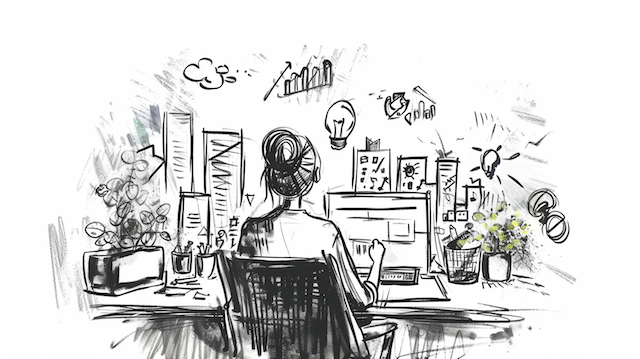My experience in Myanmar reveals the complexities of navigating a tumultuous environment marked by political instability and unpredictable market conditions. As an Indonesian unfamiliar with local nuances, they quickly learn the importance of creativity, cultural sensitivity, and empathy in marketing without reliable media channels. Decisions are influenced by personal relationships rather than formal processes, and even astrology plays a role in timing business initiatives. Despite these challenges, the focus remains on connecting with consumers and fostering trust, highlighting the meaningful impact of keeping people connected amid uncertainty.
Continue readingCategory Opinion
Balancing Act: Innovation vs. BAU
The author explores challenges in corporate innovation, specifically the tension between optimizing for existing business and pursuing disruptive innovation. Established companies often prioritize sustaining innovations, risking stagnation. To overcome this, organizations should adopt ambidexterity, challenge resource allocation biases, and cultivate a culture of experimentation, enabling long-term success amid continuous change.
Continue readingBridging the Divide: Navigating the Intersection of Higher Education and Industry in Indonesia
Indonesia’s educational landscape faces a widening gap between higher education and employment, exacerbated by socio-economic and geographic disparities. The mismatch between academic learning and industry requirements is particularly acute due to the country’s diverse geography and rapid technological development. The integration between academia and industry is low, resulting in an education system detached from industry dynamics. Edutech has the potential to revolutionize learning, aligning it with current industry trends. The Edutech initiative ‘Kuncie’ aims to make high-quality education accessible and sustainable, challenging conventional norms of education and career preparation. Support from policies and various sectors is needed to sustain these efforts, with potential solutions including bringing industry expertise into the academic setting and vice versa.
Continue readingNavigating the Gig Economy in Indonesia: A New Era of Work
The Indonesian workforce is embracing the gig economy, a trend previously dominated by Western markets. The gig economy allows individuals to work flexible hours, often as freelancers rather than permanent employees. However, it can also lead to underemployment and instability. The trend is largely driven by digitalization and the rise of app economies, and has been further accelerated by the COVID-19 pandemic. Many Indonesian workers turn to gig work for economic liberation, social mobility, and diversified career paths. However, the author acknowledges that this state of affairs results in divergent experiences, with some benefiting but others facing scarcity and underemployment. The gig economy is present in various platforms, such as Gojek, Freelancer.co.id, Upwork, and Fiverr, each catering to different niches. Despite the opportunities provided by the gig economy, challenges exist such as lack of security, stigma and systemic issues like lack of legal protection. The author believes that the government should play a crucial role in ensuring the gig economy’s contribution to the national economy and that gig workers should adopt strategies for self-protection and sustainable success.
Continue reading